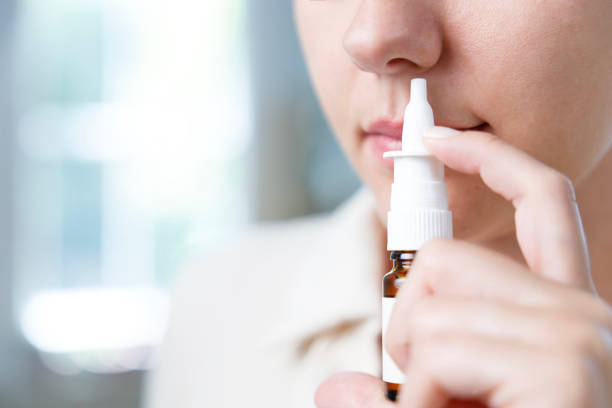USP Dry Powder Inhaler Performance Testing
The United States Pharmacopeia (USP) dry powder inhaler performance testing is a critical aspect of ensuring that inhalation products meet the stringent quality and safety standards set forth by USP. This service focuses on evaluating the delivery efficiency, dose uniformity, and reproducibility of inhaled drug dosages from dry powder inhalers (DPIs). DPIs are widely used for delivering aerosolized medications directly to the lungs via inhalation, making them a preferred method for treating respiratory conditions such as asthma, chronic obstructive pulmonary disease (COPD), and other lung disorders.
The testing process involves several key steps. First, the product is subjected to a series of challenges that simulate real-world usage scenarios. These tests are designed to assess the inhaler’s ability to deliver consistent doses under varying conditions. The tests include dry powder loading, dose delivery, and reproducibility checks. Each step ensures that the device performs reliably and predictably during use.
For accurate testing, specimens must be prepared carefully following strict protocols outlined in USP guidelines. This includes ensuring that the drug substance is properly formulated to maintain its stability and efficacy throughout the testing process. The inhaler’s components are also evaluated for their compatibility with the drug delivery system, including checks on the valve mechanism and dose counter.
The instrumentation used in this testing is highly specialized and capable of precise measurements. Devices like the PortaNOVA or similar systems can be employed to simulate the actuation forces exerted by a patient during inhalation. This allows for a realistic assessment of how well the drug is delivered under typical usage conditions. The equipment can also measure the mass median aerodynamic diameter (MMAD) and geometric standard deviation (GSD) of the powder particles, which are crucial in determining the effectiveness of the delivery system.
Once the testing is complete, a detailed report is generated that includes all relevant data points such as dose variability, actuation force, and particle size distribution. This information is used by quality managers and compliance officers to ensure that the inhaler meets regulatory requirements and performs within acceptable limits for patient safety.
Environmental factors also play a significant role in the performance of DPIs. Temperature, humidity, and storage conditions can all affect how well the device functions. Therefore, environmental testing is often included as part of this service to ensure that the inhaler maintains its integrity under various climatic conditions. This helps manufacturers identify potential issues early on and make necessary adjustments before the product reaches the market.
Inhalation products are not only essential for treating respiratory diseases but also contribute positively to public health by providing effective treatments where needed most. By ensuring that these devices perform consistently across different environments, we can enhance patient outcomes and improve overall quality of life.
International Acceptance and Recognition
The USP dry powder inhaler performance testing is widely recognized and accepted globally due to its rigorous standards and emphasis on patient safety. This service aligns with international best practices, ensuring that the results are comparable across different regions and countries. Compliance with USP standards enhances product acceptance in markets where regulatory authorities adhere closely to these guidelines.
International organizations such as the World Health Organization (WHO) and regional bodies like the European Medicines Agency (EMA) often reference USP specifications when evaluating inhalation products. This cross-acceptance means that manufacturers can rely on this testing service for compliance with multiple regulatory frameworks simultaneously, reducing costs associated with repeated testing.
Moreover, acceptance of these tests by major pharmaceutical companies and healthcare providers further reinforces their credibility. These organizations trust the accuracy and reliability of USP tests, which translates into greater confidence among consumers about the quality and safety of inhalation products.
- WHO Guidelines: The World Health Organization recommends adherence to USP standards for ensuring consistent performance across all inhalation devices.
- EMA Compliance: European regulations frequently reference USP testing methods, making compliance with these tests essential for entry into the EU market.
Environmental and Sustainability Contributions
The use of dry powder inhalers contributes positively to environmental sustainability by offering a more efficient way to administer medications compared to liquid aerosols. These devices typically produce less waste, as they do not require propellants or additional containers that are often associated with traditional inhalation products.
In terms of production, the design of DPIs is optimized for minimal resource usage and energy consumption during manufacturing processes. This efficiency extends throughout the product lifecycle, from raw material sourcing to final disposal, contributing to a reduced carbon footprint.
Additionally, the USP testing process itself incorporates environmental considerations by using sustainable practices in specimen preparation and ensuring that all waste generated is managed responsibly. This holistic approach ensures that every aspect of the inhaler's development aligns with broader sustainability goals.
The acceptance of this service internationally supports global efforts towards more environmentally friendly healthcare solutions. By adhering to USP standards, manufacturers demonstrate their commitment to both patient safety and environmental responsibility, fostering innovation in sustainable medical technology.
Use Cases and Application Examples
- Asthma Management: DPIs are commonly used for long-term control of asthma symptoms. USP testing ensures that the device delivers consistent doses, which is crucial for managing chronic conditions effectively.
- COPD Treatment: For individuals suffering from Chronic Obstructive Pulmonary Disease, reliable inhaler performance is vital. Testing confirms that the device can deliver precise dosages needed to alleviate symptoms and improve lung function.
- Patient Compliance: Ensuring consistent delivery of medication helps enhance patient compliance, leading to better treatment outcomes and reduced healthcare costs.
- Development Stage Products: Early-stage inhalation products undergo rigorous testing during development to ensure they meet all necessary standards before entering clinical trials or commercial release.





